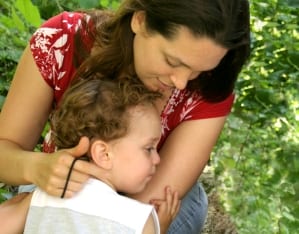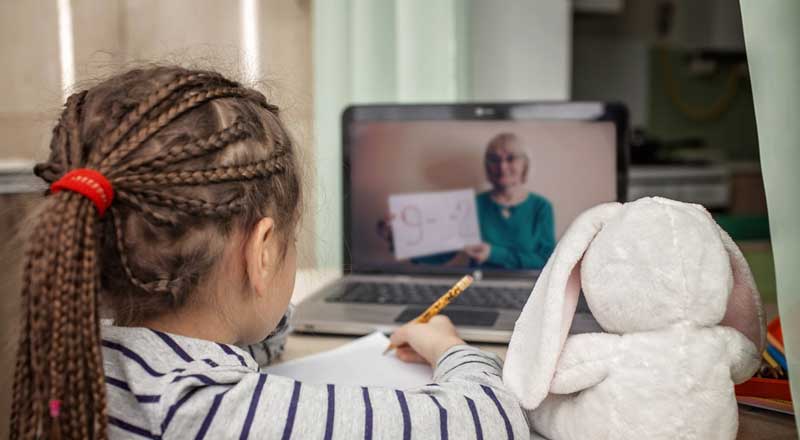Does your kid throw a fit every time you leave the house? Are there tears involved? Do you find your kid pulling on your clothes or holding onto your hand for dear life to keep you from going? Does your kid stick close to you, no matter where you go? Then, as you are surely aware by now, you have a clingy child. But, the real question is, how do you get them to “un-cling” and be more independent?
Clinginess is Common
Clinginess, according to iVillage’s Dr. Michelle Borba, usually starts around 8-9 months of age, peaks at 18 months and gradually declines from there. It should end around the time your child is 2 years old. Clinginess is also common when it comes time for your child to enter preschool, as it could be their first experience of leaving home or separating from their mom. Basically, it’s common and it’s not necessarily YOUR fault, as many moms tend to think. If your child is terrified of leaving your side, they may be in the fairly common developmental phase of separation anxiety. Additionally, this clinginess tends to happen more with mothers than fathers, which could put some strain on the parent-child dynamic between your kid and your husband. But, assure your hubby that this clinginess is a natural developmental phase and it does not mean your child doesn’t love daddy, too.
But What About Those Un-Clingy Kids I See?
It’s natural to compare your kid to those other kids you see at birthday parties, running around happily without their parents standing right by their side. Every kid is different and will un-cling when they are ready. Your child’s autonomy level could simply be lagging behind those other kids, but, more likely than not, it will catch up soon enough.
Getting Your Kid to be More Independent
If, however, your child’s clinginess is really affecting your life or your child’s (ie. your kid refuses to play with other kids at the playground, your kid doesn’t respond well to meeting new people), then there are certain things you could do to reduce their clingy behavior. 1) Expand your child’s circle of trusted people by having him or her spend time each day exclusively with other people, like dad, grandma, a nanny, or other close relatives. 2) Every day spend more and more time away from your child (leave them with a caretaker, of course), so they will gradually get used to being separated from you. 3) Before you leave, set up a fun activity for your kid to be doing with an adult, like coloring or playing dress-up. If they’re busy having fun, they’ll be less inclined to take time away from that to fuss over your departure. 4) Role play with your kid. Dr. Borba suggests rehearsing with your kid what to do when meeting a new friend. Once your kid knows exactly how to approach a new person or how to act when approached, they will find it easier to adjust to social situations. Role playing could start off with something as simple as, “Hi, my name is X. what’s your name?”
Enjoy it For Now!
One day, when your kid gets older and just wants to hang out with their friends at the mall all day, you’ll be longing for those days when he or she used to cling tightly onto your leg before you left the house. So, cherish the moments that you get to spend with your little one, before they actually do become more independent…because, trust me, that day will come!





